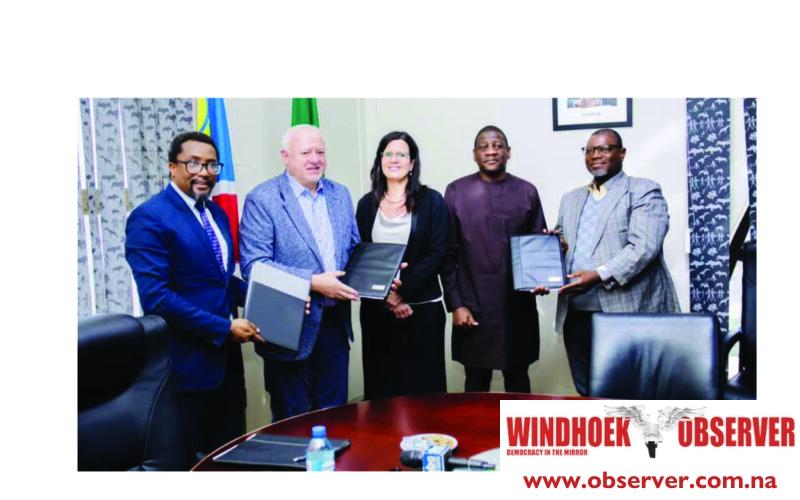Justicia Shipena
The Ondangwa Northern Tannery is set to produce 2 000 shoes per day once it becomes fully operational.
This follows a new agreement between the Ministry of Industries, Mines and Energy, the Namibia Industrial Development Agency (Nida), and Desert Planet Industries (DPI).
DPI chief executive officer Doriano said the company will invest N$58 million for the 25-year lease and plans to employ about 1 000 people.
Doriano said the tannery has potential for revitalisation and growth.
“At Desert Planet Industry, we are fully dedicated to unlocking this potential to add value to Namibia’s economy,” Doriano said.
The minister of industries, mines and energy, Natangue Ithete, described the agreement as a new start for the country’s agro-processing and industrialisation drive.
“The signing of this agreement is worth celebrating, as it has been a long time coming. The revival of the Ondangwa Northern Tannery facility represents a new partnership, collaborative relationship, and investment in our agro-processing value chain toward value addition and job creation,” he said.
Ithete said several factors delayed production at the facility despite the government’s intentions, leaving it dormant for 15 years.
The tannery was inaugurated in 2002 to transform raw cattle hides into leather products for domestic and export markets but has been dormant for 15 years.
“We are fortunate to have learnt from those challenges and now have the chance to apply those lessons in this new chapter of operations.”
He stressed that the partnership will restore industrial capacity, create jobs, and empower livestock farmers as well as skilled and unskilled workers.
He called on all stakeholders, including livestock farmers, local authorities, and the public, to fully utilise the facility and ensure a minimum monthly supply of hides for cattle, small stock, and seals.
Ithete added that the lease agreement commits to unlocking value, restoring capacity, bringing services to the people, and creating sustainable employment.
Nida board chairperson Sebby Kankondi said the project will contribute to skills development and empower locals, especially youth and women.
Earlier this year, Nida announced plans to create 35 000 jobs over the next five years.




